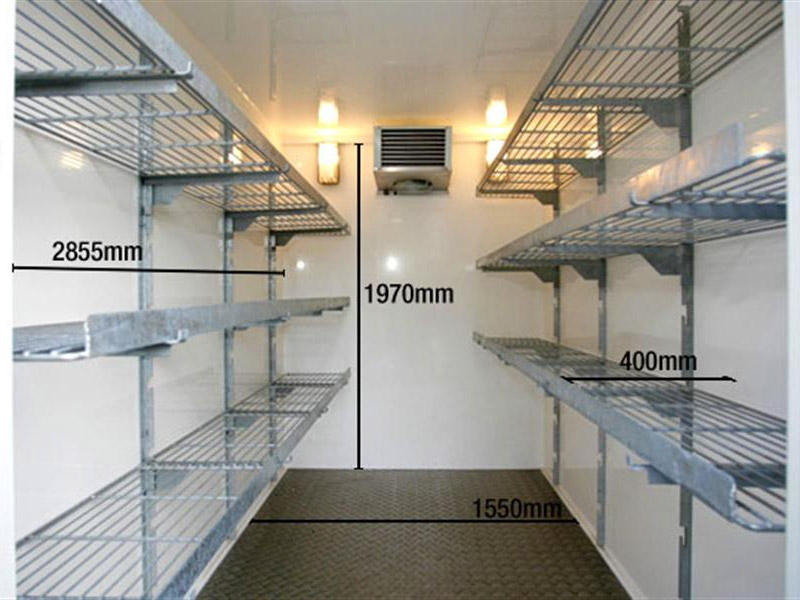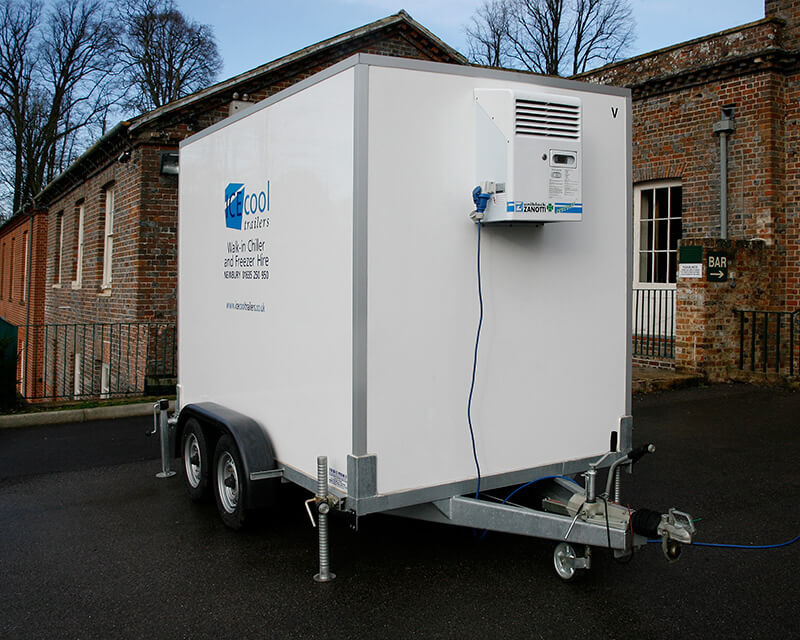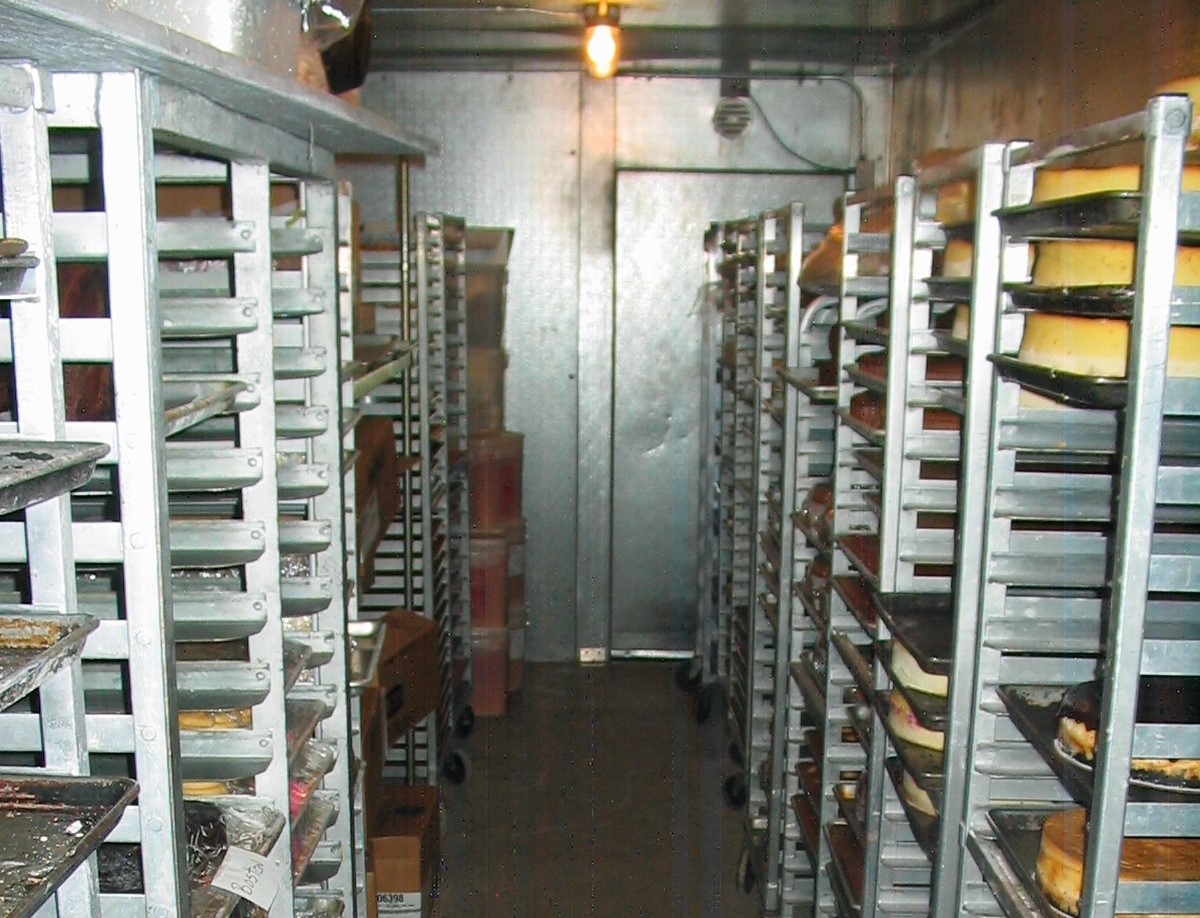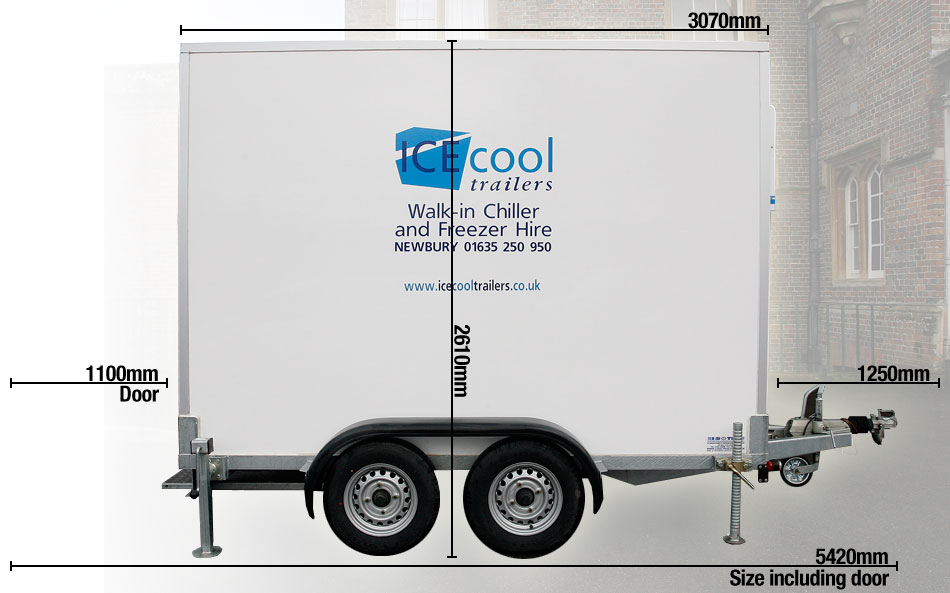The Importance of FSA Compliance in Fridge Trailers

Imagine this: you're at a summer festival, enjoying the sunshine and live music, and you decide to grab a refreshing burger from a food stall. But as you take a bite, you notice something's not quite right. The burger feels lukewarm, and there's an odd taste that makes you question its freshness. Suddenly, your festival fun takes a nosedive, replaced by worries about food poisoning.
This scenario highlights the essential role of fridge trailers in ensuring food safety, especially in mobile catering and events. And when it comes to food safety in the UK, the Food Standards Agency (FSA) sets the bar high. So, if you're involved in the food industry and utilise fridge trailers, understanding and adhering to FSA compliance is not just a good idea, it's an absolute necessity.
What is the FSA (Food Standards Agency)?
The FSA is an independent government body responsible for protecting public health in relation to food in the UK. They set the standards for food safety and hygiene, providing guidance and enforcing regulations to ensure that the food we consume is safe and of the quality we expect.
Why FSA Compliance is Critical for Mobile Refrigeration
Fridge trailers are essentially mobile refrigerators, used to transport and store perishable goods at safe temperatures. They're a lifeline for caterers, event organisers, and food businesses operating on the move. But without proper temperature control and hygiene, these mobile units can quickly become breeding grounds for bacteria, putting consumers at risk of foodborne illnesses.
FSA compliance ensures that fridge trailers meet strict standards for:
- Temperature control: Maintaining food at safe temperatures to prevent bacterial growth.
- Hygiene: Ensuring cleanliness and preventing cross-contamination.
- Record-keeping: Monitoring temperatures and maintaining records to demonstrate compliance.
Key Requirements for FSA-Compliant Fridge Trailers
Let's break down some of the key requirements that fridge trailers must meet to comply with FSA regulations:
Maintaining Proper Temperature
Fridge trailers must be capable of maintaining food at or below 8°C. This temperature range significantly slows down bacterial growth, ensuring food remains safe for consumption.
Cleanliness and Hygiene Standards
Fridge trailers must be kept clean and hygienic to prevent cross-contamination. This includes regular cleaning of the interior, proper disposal of waste, and ensuring that staff handling food maintain high standards of personal hygiene.
Monitoring and Record-Keeping
Temperature monitoring is crucial to demonstrate compliance. Fridge trailers should be equipped with thermometers or temperature recording devices to track temperature fluctuations. Records of these temperatures must be kept for inspection by FSA officers.
Consequences of Non-Compliance in Fridge Trailers
Failing to comply with FSA regulations can have serious consequences:
Health Risks to Consumers
The most significant risk is the potential for foodborne illnesses. Consuming contaminated food can lead to nausea, vomiting, diarrhoea, and in severe cases, even hospitalisation.
Legal and Financial Penalties
Businesses that fail to comply with FSA regulations can face legal action, including fines, closure of premises, and even prosecution. This can have significant financial and reputational implications.
And if you're looking for guidance on finding the right fridge trailer solutions, take a look at our blog post on choosing the right fridge trailer supplier.
Best Practices for Ensuring FSA Compliance in Fridge Trailers

Here are some practical steps to ensure your fridge trailers meet FSA standards:
Regular Maintenance and Inspections
Regularly service and inspect your fridge trailers to ensure they are functioning correctly. This includes checking the cooling system, seals, and temperature monitoring equipment.
Staff Training on FSA Guidelines
Provide comprehensive training to staff on FSA guidelines for food safety and hygiene. This ensures everyone handling food understands their responsibilities and maintains high standards of practice.
Using Technology to Monitor Compliance
Utilise technology to monitor temperature and ensure compliance. Consider using temperature data loggers or remote monitoring systems that provide real-time alerts in case of temperature fluctuations.
Benefits of FSA Compliance for Businesses
FSA compliance is not just about avoiding penalties; it also offers significant benefits for businesses:
Improved Food Safety
By adhering to FSA guidelines, you prioritise food safety and reduce the risk of foodborne illnesses, protecting your customers and your reputation.
Building Trust with Customers
Demonstrating your commitment to FSA compliance builds trust with your customers, assuring them that you prioritise their health and well-being.
Avoiding Legal Issues
Compliance with FSA regulations helps you avoid legal issues, fines, and potential business disruptions, allowing you to focus on what you do best: providing quality food and service.
Final Thoughts
FSA compliance is a non-negotiable for any business utilising fridge trailers. It's a commitment to food safety, public health, and responsible business practices, and by adhering to FSA guidelines, you protect your customers, your reputation, and your business's future.
If you're looking for high-quality fridge trailers that meet FSA standards, explore our range of high quality fridge trailer in UK. We offer a variety of sizes and specifications to suit your needs, ensuring your food stays safe and your business stays compliant.



